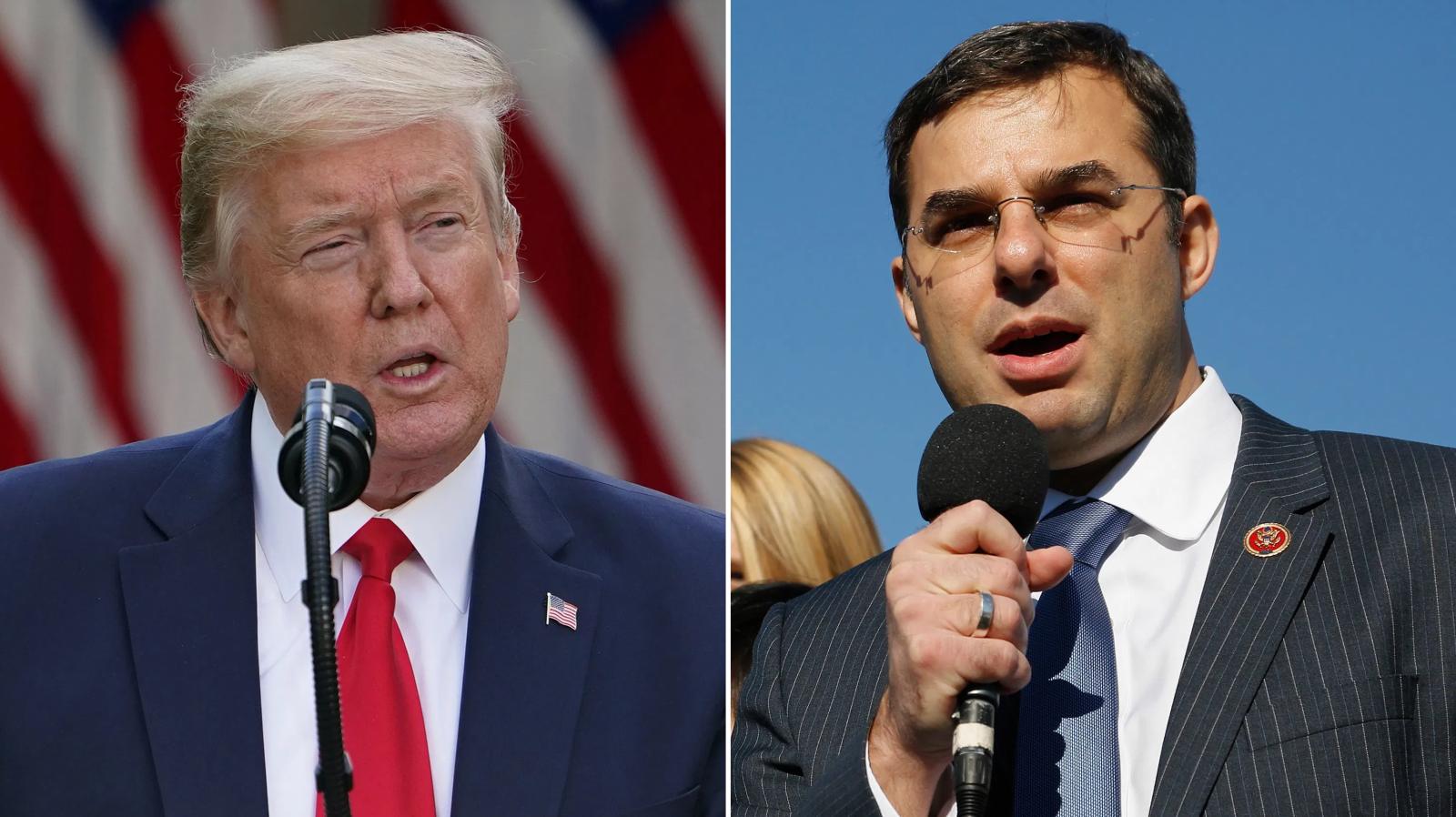It was often said that 2016 should have been the year for a third-party bid to intrude into the general election with a stronger impact than would normally be expected. Neither Hillary Clinton or Donald Trump was particularly well-liked by the electorate, with neither receiving high “favorable” marks, leaving an open lane for a more well-liked independent. However, the Libertarian Party in 2016 couldn’t manage anything more than nominating weak, Republican leftovers in former New Mexico Gov. Gary Johnson, and former Massachusetts Gov. Bill Weld.
Perhaps in 2020, with the election shaping up to a be a Biden vs. Trump affair, a third-party candidate might see an opening again. Enter Republican Rep. Justin Amash, who already announced his Libertarian Party candidacy last week. True, Amash, once again, is a “leftover” elected “Republican” rather than an elected independent or Libertarian, but getting elected outside the two major parties is near impossible, if not entirely impossible, in most districts.
Amash has been a fairly consistent critic of President Trump, and his Libertarian views, of which he professes strongly, leave him no fan of Joe Biden, either. On the political compass, Amash sits further on the right-leaning side of the equation, as most Libertarians do, but that doesn’t mean his candidacy would shake out the way you might expect.
In all historical truthfulness, independent or third-party candidates never fare all that well in a general election. In the end, partisans usually come home, even soft-leaning partisans. Even independents, who dislike both parties, still don’t want to “throw their vote away” voting for someone unlikely to win or even show.
However, with all that said, analysis from FiveThirtyEight does see openings for Amash to have an impact in some key battleground states, notably Michigan:
Amash’s candidacy, in particular, could affect the margins in some key battleground states, including his home state of Michigan, which was pivotal to Trump’s victory four years ago. Consider what happened in 2016: In 11 states, Libertarian nominee Gary Johnson’s raw vote total exceeded the vote margin separating Trump and Hillary Clinton. Now, that doesn’t mean Johnson necessarily changed who won in each of those states, but he and other third-party contenders (like Jill Stein of the Green Party) may have helped shape the outcome, especially in the three states that proved decisive in the Electoral College: Michigan, Pennsylvania and Wisconsin.
Michigan will be a heavy haul for Trump as it was in 2016, it’s a state he might unequivocally need to secure 270 electoral college votes. Amash, hailing from Michigan, could have an outsized impact there compared to other states.
In terms of conventional wisdom, it would seem Amash poses a greater threat to Trump:
Estimates vary for how many Americans are “libertarian” — perhaps anywhere from 4 percent to 22 percent of the public — though most voters back one of the two major parties, so we’re not talking about a huge portion of the electorate. That said, there is evidence that more libertarian-minded voters are more likely to vote Republican than Democratic, which could cost Trump at the ballot box.
With Amash’s Republican-roots in the House, he’ll easily peel some #NeverTrump Republicans away, but those numbers are probably quite small in the grand scheme of a national election. There could be Democrats, however, who aren’t thrilled with the prospects of Joe Biden, and certainly wouldn’t vote for Trump, but might see Amash as an option with his Midwest pedigree:
If 2020 is a referendum election on Trump’s presidency, Biden may not want another well-known candidate in the race to give potential anti-Trump voters a different choice. Polls have long shown that a majority of voters prefer an alternative candidate to Trump, but that doesn’t mean that alternative has to be Biden. So it’s possible that Amash could win over some of these voters, lowering Biden’s ceiling and narrowing the race between the major-party nominees.
If Amash is expected to do as well in his home state as Gary Johnson did in 2016, taking nine percent in New Mexico, then Amash could be a gamechanger in a close election.
Imagine a situation where Amash takes somewhere as high as 9% of the Michigan vote, leaving Biden and Trump to fight over the remaining 91%. That’s a scenario neither campaign will be pleased with, but it’s a situation that’s plausible.
On the other hand, perhaps Biden will play better in states like Michigan than Hillary Clinton did. In that case, perhaps Amash will be more likely to hurt Trump if Democrats and Democrat-leaners stick heavily to Biden, leaving only some independents and moderate Republicans to pull a lever for Amash.
Amash’s influence shouldn’t be overstated, it will still likely be small, but it could turn a state to or from Trump or Biden. It’s also possible that Trump will succeed in locking up near-unanimous Republican support in November running on his record, which generally receives high marks from his own party. That would leave less room for Amash among right-leaning voters.
In summary, Amash might matter, and he might not. The key here is Michigan, a state that will be a heavy battleground. If Amash was hailing from New Mexico, for example, as Gary Johnson in 2016, it wouldn’t matter as much since that state was expected to vote Democrat, which it did. Michigan has been reliably blue for a long time, then it flipped in 2016. With Amash involved, the battle could be tighter and every vote counts making him more influential than a third-party candidate might otherwise be under normal circumstances.
Donate Now to Support Election Central
- Help defend independent journalism
- Directly support this website and our efforts
